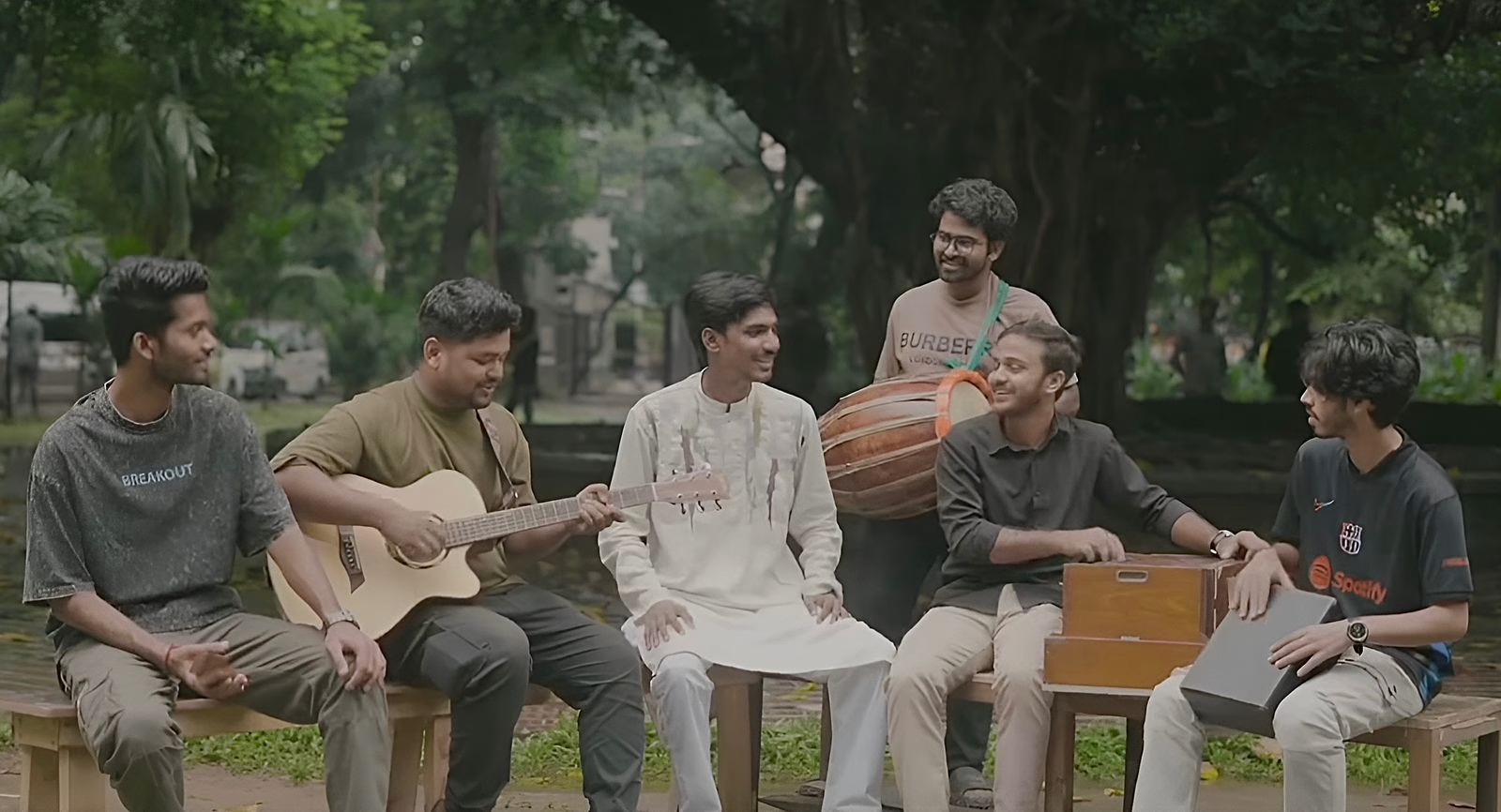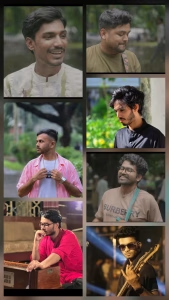“Ducsu Ailo Re!” a unique song created to promote Ducsu candidate Lanju Khan, has turned Dhaka University’s campus into a festive ground in the final days of the election. While excitement among students was always present, this song, written by Abdul Mostakim Sifat and sung by Lanju Khan, drew particular attention.
Beyond mere election campaigning, it reflects the unity, struggles, hopes, and cultural consciousness of the students, adding a celebratory energy to the campus atmosphere.
Right at the beginning of the song, the repeated chant “Ailo Re Ducsu!” indicates a joyful atmosphere on the DU campus. It makes clear that students are taking the Ducsu election not just as a political event but as a festival.
The song highlights expectations of a division-free Ducsu, the hope for qualified leadership to emerge, and the importance of student voices. In other words, the message is not only that an election should take place, but that it must be transparent, fair, and acceptable. This expectation is echoed in every line of the song.
The vocalist of the song and Ducsu candidate, Lanju Khan, told Times of Bangladesh, “Ducsu is like a festival for us. I felt that the excitement students have around DUCSU should be energised with a touch of literature and culture.” When asked how the sudden idea of making a song about Ducsu came, he replied, “Since I am a man of music, I chose music.”
In his voice, this initiative reminds everyone that DUCSU is not just a platform of electoral politics but also a symbol of the university’s cultural consciousness.
What makes the song unique are its historical references, reflections of contemporary issues, and cultural diversity. Here, the mention of Surjasen, Mujib, Jasimuddin, Zahurul Haq, Shamsunnahar, Bangamata, Ruqqaiah, or Sufia Kamal halls are not just names but symbols of DU’s student movement history, struggles, and women’s participation.
Lanju said, “The song is written by Sifat. He is like my younger brother. His thoughts, my thoughts, and the ideas of everyone involved in the song have come together in one place. Equality, unity, and positivity.”
The song also speaks about students’ real problems. Issues like ragging, tagging, “Gono rooms”, housing shortages, or breaking rules are presented not just as complaints but as pledges for change. Alongside that, the ballot paper in students’ hands has been portrayed as a symbol of power. “The ballot paper is in their hands; the vote is their power.”
This part is especially important because it shows that students want to use their rights not only as demands but also as tools for real change.
The production of the song is also different. Not only the singer or the musician, but almost all the organisers are also Dhaka University students. As a result, the song has become a symbol of DU’s young generation’s creativity. The tune carries a unique blend of modern rap flavour with the traditional style of Mymensingh Geetika’s ballads.
Writer of the song Shifat, a student of 4th year, told Times, “Many are considering the song as a ‘Theme song of DUCSU’, which makes me truly very happy.” According to him, culture has always influenced politics. The songs of the Language Movement, the poems of the Liberation War, or the songs of the 2024 movement are proof of that.
He believes that cultural movements will continue to play an important role in political contexts in the future.
Meanwhile, Lanju’s plan is not limited to music. He wants to break down the invisible wall between teachers and students. He wishes to create a central magazine for the campus and organise platforms for drama, painting, mime, dance, and films.
Besides, he expressed hope to ensure the coexistence of cultural revolutions in future politics. It is like a new outline of a cultural movement where, alongside political activism, art and literature will also become equally important.
He shared his favourite line from the song: “Agun sheshe fagun ailo, Jaglo jokhon jonota. Shoiracharer biday karon shikkharthir ekota.” Here “Agun” symbolises the oppression and torture of dictatorship, and in contrast comes “Fagun,” a new beginning. That is, the victory of the July Movement.
And all of this was possible through the unity of students. That is why these two lines are especially dear to him. On the other hand, the line that inspires hope for the future in students’ minds is, “Ailo re, ailo re, Ducsu ailo re! Notun bhore rongin sure khushir joyar ailo re!”
All in all, this song is not just a part of the campaign but has become a reflection of Dhaka University’s tradition, cultural consciousness, unity, and struggle. Around the Ducsu election, this song is expected to encourage the young generation to connect not only with voting politics but also with larger democratic and cultural movements. As a result, Lanju Khan’s initiative will remain a unique addition to the history of this year’s Ducsu election.



